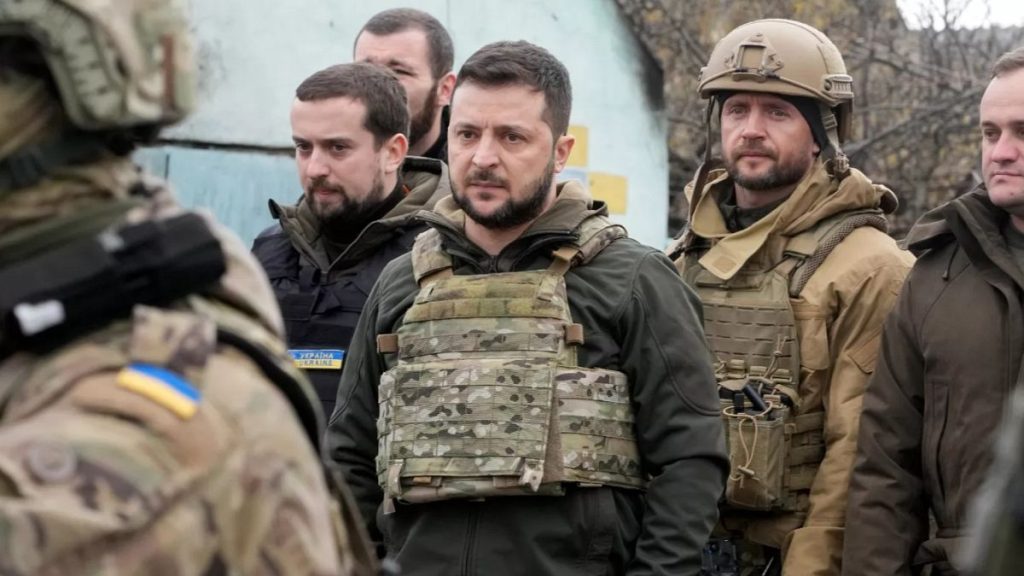The Evolving Landscape of Ukraine-Russia Negotiations
The prospect of negotiations between Ukraine and Russia has been a recurring theme throughout the conflict, marked by shifting stances and a backdrop of escalating hostilities. Early attempts at dialogue in February 2022, just days into the full-scale invasion, showcased a glimmer of hope for a peaceful resolution. Delegations met on the Belarusian border, aiming to establish a ceasefire and the withdrawal of Russian troops. However, the absence of preconditions from the Russian side and the undisclosed nature of their objectives foreshadowed the challenges that lay ahead. These initial rounds of talks, held both in person and virtually, ultimately failed to yield tangible results as the conflict intensified and atrocities against Ukrainian civilians came to light.
The discovery of mass graves and evidence of torture in areas like Bucha following the Russian retreat from Kyiv dealt a severe blow to the fragile negotiation process. The horrifying images of civilian casualties sparked international outrage and solidified Ukraine’s resolve to pursue war crimes investigations. While President Zelenskyy acknowledged the necessity of continuing dialogue to achieve peace, the atrocities committed by Russian forces cast a long shadow over any prospect of meaningful negotiations. The conflict shifted from a potential diplomatic resolution to a grim struggle for justice and accountability.
A significant turning point occurred in September 2022 when Russia unilaterally annexed four Ukrainian regions, claiming them as Russian territory. This act of aggression prompted Ukraine’s National Security and Defence Council to impose a ban on direct negotiations with President Putin. The ban reflected Ukraine’s unwavering stance against accepting Russia’s territorial claims and its determination to resist further aggression. President Zelenskyy defended the decision, asserting that it aimed to prevent Russia from exploiting multiple channels of communication, including those involving separatists, to exert undue influence over Ukraine’s sovereignty. He emphasized his exclusive authority as the sole negotiator on behalf of Ukraine.
Russia, predictably, criticized Ukraine’s decision to ban direct talks with Putin, attempting to portray Kyiv as an obstacle to peace. Moscow’s rhetoric sought to shift blame onto Ukraine, falsely claiming that Zelenskyy lacked the authority to sign peace agreements. This tactic aimed to undermine Ukraine’s position on the international stage and create a narrative of intransigence. However, Ukraine’s position remained steadfast, emphasizing the illegality of Russia’s annexations and the necessity of holding Moscow accountable for its actions.
Previous attempts at negotiated settlements, such as the 2019 Normandy Format summit in Paris, further underscore the complexities of the Ukraine-Russia relationship. This meeting, involving the leaders of France and Germany alongside Zelenskyy and Putin, aimed to revitalize the Minsk peace process, which had failed to deliver on its promises of troop withdrawals and disarmament of illegal groups. Russia’s subsequent full-scale invasion in 2022 demonstrated its disregard for the commitments made under the Minsk agreements, highlighting the deep-seated mistrust between the two countries.
President Zelenskyy has consistently emphasized the importance of robust security guarantees for Ukraine, rejecting the notion of "situational agreements" that fail to address the fundamental issues at stake. He has drawn a stark contrast with the previous Minsk agreements, which proved ineffective in preventing further conflict. Zelenskyy’s insistence on strong security guarantees reflects Ukraine’s determination to prevent a repeat of the past and ensure its long-term security and sovereignty. The ongoing conflict underscores the critical need for a lasting peace agreement that addresses the root causes of the conflict and provides a framework for a stable and secure future for Ukraine.
In conclusion, the path towards a negotiated settlement between Ukraine and Russia remains fraught with challenges. Early attempts at dialogue were undermined by escalating violence and the discovery of atrocities committed by Russian forces. Russia’s annexation of Ukrainian territories further complicated matters, leading to a ban on direct talks with President Putin. Previous failures, such as the Minsk agreements, underscore the deep mistrust between the two sides. President Zelenskyy’s firm stance on the need for strong security guarantees highlights Ukraine’s determination to secure a lasting peace that respects its sovereignty and territorial integrity. The future of negotiations remains uncertain, but the need for a peaceful resolution to the conflict remains as urgent as ever.














